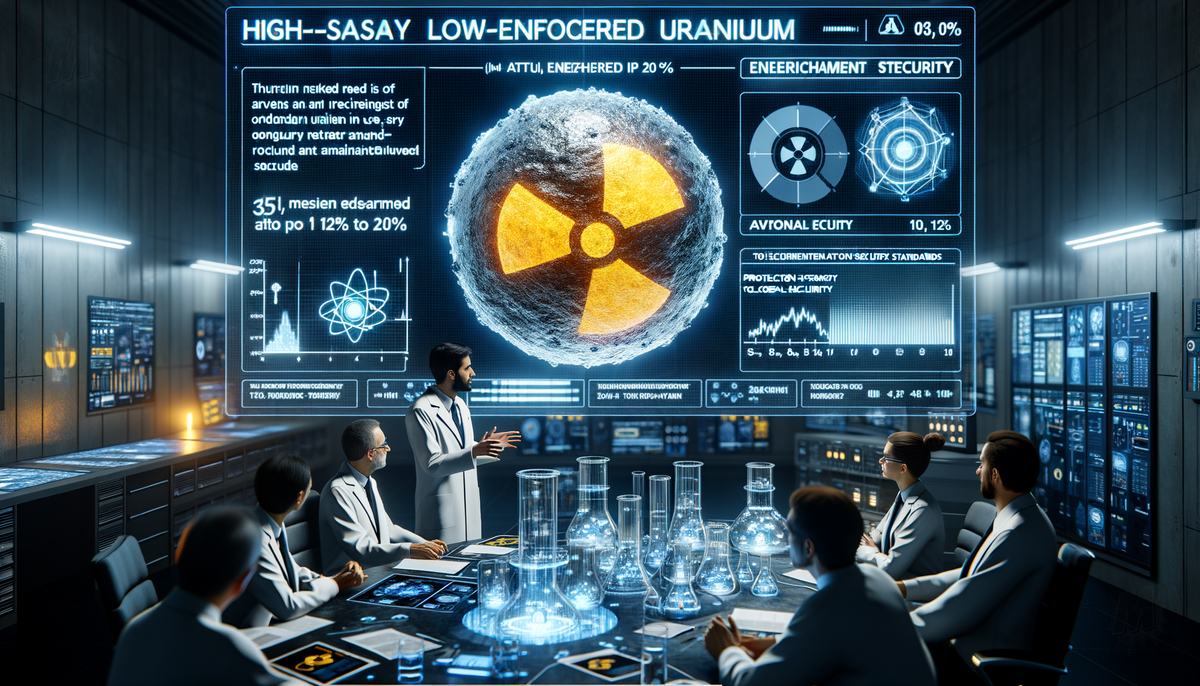High-Tech US Reactor Fuel Could Pose Weapons Risk, Experts Warn

Scientists have raised concerns about the security risks posed by high-assay low-enriched uranium (HALEU), a special uranium fuel intended for use in next-generation U.S. nuclear reactors. HALEU is enriched to levels of up to 20%, significantly higher than the approximately 5% used in most existing reactors. This higher enrichment level means HALEU could be used directly for nuclear weapons without further enrichment. The U.S. plans to produce HALEU to fuel new types of reactors, and President Joe Biden's administration has allocated $700 million for a HALEU availability program, including purchasing the fuel for small modular reactors and other advanced reactors.
Experts, including R. Scott Kemp and his colleagues, argue that if HALEU becomes a standard reactor fuel without stringent regulations, it could undermine the international system of controls that has prevented nuclear weapons proliferation for decades. The researchers suggest that limiting HALEU enrichment to 10-12% would enhance security with only modest additional costs. They also recommend strengthening security standards to protect HALEU from theft, aligning them with those for highly enriched uranium (HEU) and plutonium. The Department of Energy estimates that more than 40 metric tonnes of HALEU may be needed by the end of the decade to support the deployment of advanced reactors.




